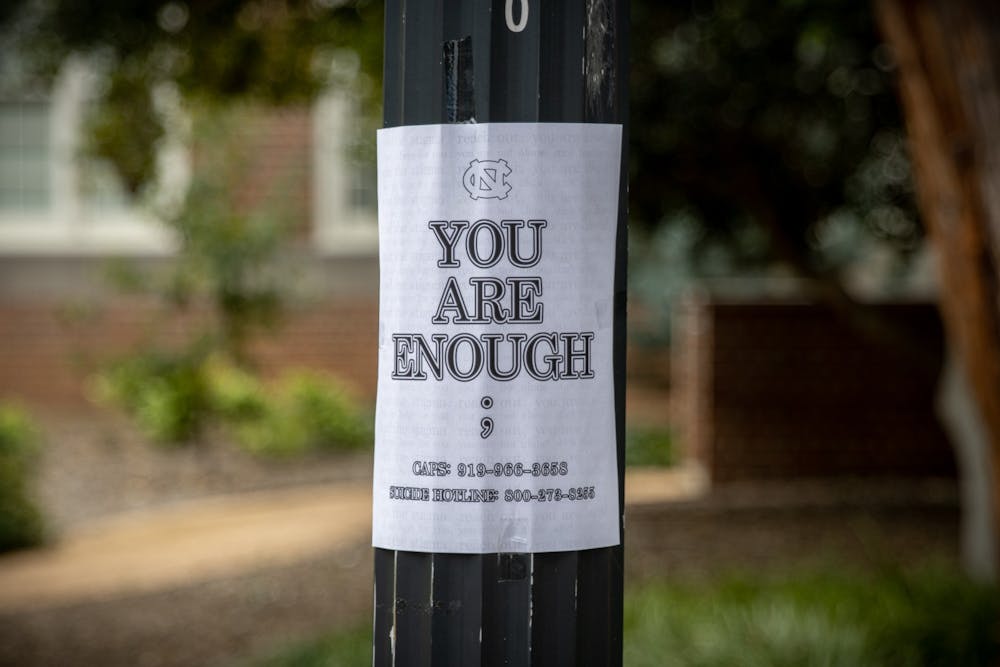Content warning: This article contains mentions of suicide.
*
*
*
In the wake of tragic events that occurred at UNC two weeks ago, students, faculty and staff have been struggling to understand the role they play in creating a safe environment on campus.
With CAPS overbooked, some faculty members have put it on themselves to become mental health resources to students. This offer isn't very surprising.
Many are aware of the mental health decline in college students. Approximately 65.3 percent of professors agree students’ mental health has declined since the beginning of their careers, according to a collaborative report from the Boston University’s School of Public Health, Mary Christie Foundation and Healthy Minds Network. In addition, 87.2 percent agree students’ mental health has declined since the beginning of the COVID-19 pandemic.
However, professors shouldn’t be expected to serve as mental health resources. The expectation for them to take on this role reveals more than one problem about the way UNC handles mental health.
Due to the stigmatization of mental health on college campuses, general education surrounding the issue is limited — and the average individual isn’t formally equipped to handle it. In fact, expecting non-professionals to handle the topic of mental health can do more harm than good. The spread of misinformation and poor advice can have devastating consequences.




